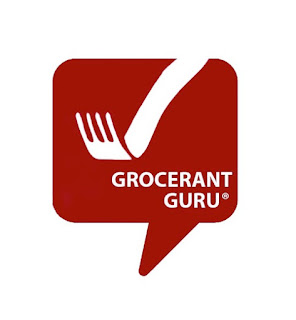Success does leave clues and industry leading companies
understand that there is a increased unmet need that consumers are expressing
when it comes to their everyday life and food, meals, and beverages. That unmet need is being express in the form
of more ‘sustainable’ food and beverage products that according to Steven Johnson,
Grocerant
Guru® at Tacoma, WA based Foodservice Solutions®.
In fact, according to NPD, consumers reported in July that 63% of their eating occasions during the COVID-19 outbreak have been atypical, meaning they’re eating and sourcing foods and beverages outside of their normal routines. That disruption has elevated consumers focus or ‘better for you’ sustainable food and beverage options according to Johnson.
Around the world consumers are expressing greater sense of urgency around climate change and nature loss. In a new partnership, the Walmart Foundation, Cargill, and McDonald’s are investing over $6 million in an initiative led by World Wildlife Fund that aims to make lasting improvements to the grasslands of the Northern Great Plains.
This new program, known as the Ranch Systems and Viability Planning (RSVP) network, will support ranchers across the ecoregion—focusing primarily on Montana, Nebraska and South Dakota—with technical expertise, training and tools to help advance grazing practices that improve the health of the land. By improving management of one million acres over five years and avoiding conversion, this effort will result in increased carbon storage and sequestration, improved water infiltration and better outcomes for biodiversity.
Kathleen McLaughlin, EVP and chief
sustainability officer for Walmart and president
of the Walmart Foundation stated, “Collaborative
efforts like this can accelerate innovative, sustainable solutions and support
ranchers in the beef supply chain,” … “Sustainable grazing practices that
improve soil health, absorb carbon and reduce water consumption can help to
protect the land and people who depend on it.”
Regular reader of this blog know that
Johnson has been highlighting food companies that are focused on elevating 2021
in food as the year the industry focuses on “from Me to We” movement in food. That
is expanding the ‘halo’ of ‘better for you’ food offerings within every sector
of retail food.
Th RSVP program supports the Walmart Foundation’s focus to bring more sustainable, regenerative practices to the beef industry. The Foundation aims to build connections that can accelerate systems change and form communities of practice with grantees and leaders to share learnings, advance best practices, foster collaboration and scale collective impact. Investing in conservation activities in the Northern Great Plains supports the stewards of those lands and contributes to climate resilience efforts.
The press release announcing this
partnership stated this “also supports McDonald’s ambition to use its scale and
many relationships from the farm to the restaurant to help significantly reduce
greenhouse gas emissions and evolve the food system for a resilient and
sustainable future. As the first restaurant company in the world to set an
approved science-based target on climate action, McDonald’s is
partnering across the supply chain to employ a diverse set of strategies, which
scale-up action across the industry.”
Francesca DeBiase, McDonald’s EVP, Chief Supply
Chain and Sustainability Officer stated, “I’m proud of McDonald’s investment in
programs like the Ranch Systems and Viability Planning network. These
partnerships bring producers, suppliers, NGOs and brands to the table to drive
the widespread adoption of more sustainable and regenerative practices that
reduce emissions, mitigate climate change and support livelihoods,” “This innovative work is an important step
toward scaling climate solutions across the supply chain, building resiliency
and achieving McDonald’s science-based climate target to significantly reduce
emissions across our offices, restaurants and supply chain by
2030.”
Extending the ‘halo’ even further this
project is also part of Cargill’s BeefUp
Sustainability initiative, which seeks to reduce greenhouse gas emissions
throughout the company’s beef supply chain by 30 percent by 2030, measured on a
per pound of beef basis against a 2017 baseline. Earlier this year, Cargill
launched two other programs to support this goal, including a grassland
restoration effort and an initiative to implement proven soil health
practices in cattle feed.
Heather Tansey, sustainability lead for Cargill’s protein and animal nutrition and
health businesses stated “We believe beef cattle can be a force for good, and
one of the ways we can address some of our shared challenges by preserving
wildlife and drawing down carbon, … “This initiative is a testament to that.
I’m inspired by the efforts of ranchers who live this belief each day, and
grateful for our partners who join us lending scale, resources and experience
to advance realistic solutions that address climate change.”
In the Battle for Share of Stomach
are you keeping up?
What will you be
doing in 2020 to drive the ‘halo’ of better for you around your brand? Success
does leave clues. One clue that time and time again continues to resurface is
“the consumer is dynamic not static”.
Regular readers of this blog know that is the common refrain of Steven
Johnson, Grocerant
Guru®
at Tacoma, WA based Foodservice Solutions®.
Our Grocerant Guru® can help your
company 253-759-7869.







No comments:
Post a Comment